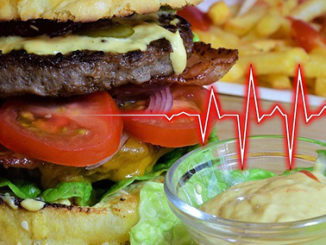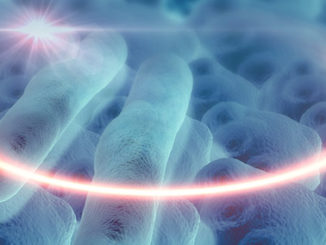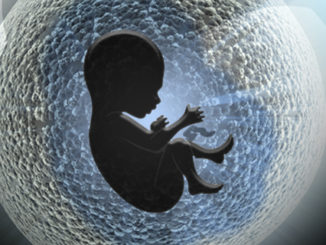Explore the many ways in which different types of food and drink have potential to influence epigenetic marks on DNA and, ultimately, health outcomes. Learn how broccoli may be able to epigenetically reduce cancer risk, how an assortment of herbs could boost health, and even the ways a high fat, low carb diet may be able to boost mental ability. This collection of cutting-edge nutriepigenetic research studies aims to break down complex dietary epigenetic findings and understand its potential application in our daily life.
Check out our comprehensive e-book Epigenetics in Life: What We Eat to learn more about how different foods influence health.
Data from the Global Cancer Observatory (GLOBOCAN) shows that colorectal cancer is the third most lethal cancer in the world. Millions of new cases are diagnosed each year, with a trend that is steadily increasing—and this growth is fastest in countries where the “western diet” is prevalent. Lifestyle factors seem to contribute to some extent. Researchers are scrambling to make sense of exactly how. In fact, a subtype of colorectal cancer is known as sporadic colorectal cancer (CRC) occurs in [more…]
Obesity continues to be a rising problem in the US. It can result in a number of negative health effects that can shorten life expectancy like diabetes, hypertension, and can even alter the functionality of sperm in men. With fertility levels in recent decline for both women and men it’s important to understand all factors that contribute to healthy reproduction. While correlation does not necessarily mean causation, the relationship between fertility and obesity is important to focus on, and it [more…]
As the holiday season brings about more parties, people are more likely to drink beyond healthy limits. In this social minefield of alcoholic beverages being served liberally, addicts may find themselves more inclined to fall back into their habit, already facing an average rate of relapse somewhere between 40 and 60%. We already know that alcohol can have several different effects on our epigenetics, all of which are negative. We’ve seen that binge drinking as a teenager can severely hinder [more…]
Type 2 diabetes is a chronic illness in which a person’s body cannot produce enough insulin to process blood sugar in a healthy way. It affects millions of people all over the world, and it can be a debilitating and even deadly disease if not properly managed. The inability to metabolize glucose can lead to long-term damage to blood vessels in organs and tissues— and may eventually lead to death. Quantifying this damage lets people take action, changing their habits and [more…]
One of the great pastimes of the human species is getting together to have a couple of beers after work, going out for cocktails on the weekend, or ending your evening with a nightcap before bed. Alcohol is a part of many cultural norms, and is fine in moderation, but could promote health problems down the line if consumed in excess too often, or too early. American adults of both sexes are no strangers to binge drinking; one out of [more…]
If you have ever suffered the excruciating pain of kidney stones, you definitely don’t want that experience again. Unfortunately, reoccurrence is high for this condition. Therefore, treatment options that can prevent stones from returning are in great demand. One simple home remedy that many people swear by is vinegar. While most findings supporting its use are anecdotal, those who regularly consume vinegar tend to have a reduced risk for developing kidney stones. Exactly how it works within the body, however, [more…]
In the United States, obesity has become an epidemic that has been sweeping the nation for quite some time. Poor dietary habits have become far too customary among the American people, so it is no surprise that obesity rates are extremely high. Obesity presents a person with numerous adverse health effects that can shorten life expectancy like hypertension, diabetes, and perhaps most importantly, heart disease. Heart disease is currently the leading cause of death in both men and women in [more…]
The human body is made up of about 100 trillion cells, but not all these cells are ‘real’ human cells. About one-tenth, in fact, are tiny organisms like bacteria, fungi, and viruses that live within us and on us. These organisms are collectively known as microbes and they play an essential role in human health and disease. Yet, exactly how they function and are affected by environmental changes is not entirely understood, and even less is known about how the [more…]
Having a high-fat diet (HFD) is not only linked to obesity but also to an increased risk of developing heart disease, type 2 diabetes, and certain mental health disorders. With obesity levels on the rise, it’s critical that we know more about how a HFD affects the body and find ways for early prevention. In recent years, there has been a growing area of interest into the behavioral consequences of a HFD and if these are passed onto subsequent generations [more…]
It’s been said before that health begins in the womb. That’s because the conditions we encounter in utero impact not only our well-being in infancy but throughout our entire lives. But what happens when the nutritional environment in the womb is less than favorable? Most epigenetic studies have suggested that embryos respond to adverse environmental conditions by adjusting their gene expression. However, new research proposes something entirely different may occur. Instead of adapting to the environment, random variations in gene [more…]










